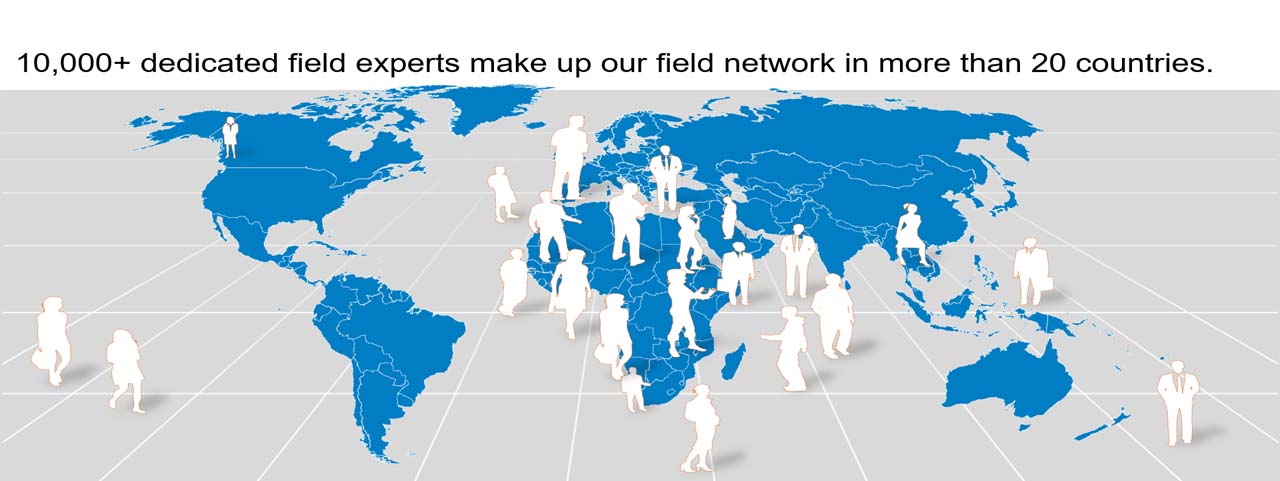
A survey is all about data collection. The quality of data collected has a far-reaching effect and will go on to determine the level of success of a project or its downfall. Poor-quality data or bad data is misleading, even though the project assumes to have the right trajectory in its initial stages. Bad data does more than affect individual projects, it disrupts the entire business goal including causing irreparable damage to customer relationship, reduce the effectiveness in decision-making, breed organizational mistrust, damage employee morale, and damage the brand's image. It can cost any business more than sales.
Financial costs cannot be disregarded. In fact, IBM revealed bad data costs companies in the U.S $3 million annually. Gartner further discovered an estimated $14.2 million is lost by most organizations annually. Apparently, when a survey is carried out wrong, it yields bad data, which hampers business growth. So, when next you want to embark on a survey, either in-house or outsourcing to a market research agency, you must have a rethink. Here is exactly why you should think twice about your survey. To start with, you must know what really causes bad data.
What Causes Bad Data?
In recent years, more references have been made with respect to bad data and its tremendous impact across many media outlets. Different businesses have different data needs, meaning that the issues of quality data faced by a business might differ from that of another. Bad data issues can be categorized to include:
- Data "views" (How the data captures the real world) such as the granularity, relevance, validity and detail level.
- Issues of Data values, including the consistency, completeness, accuracy, and currency of the presented data.
- The presentation of the data including the format used, ease of data interpretation, etc.
- Others including Privacy, Ownership, and security.
Basically, a lot of factors will determine the outcome of a surveyed data. From sample type and size of the sample, mode of survey and data collection tools to the mode of analysis, a lot can affect the outcome of a research. Nevertheless, the right strategy will evaluate each factor and determine the path to obtain the best results. Once the strategy is mapped out, a second look is needed. Here a 3 common bad data sources that you should be wary of and how you can avoid them.
- Questionnaire flaw
Questionnaires are integral in obtaining information from a given sample over a topic. The design of the questionnaire will determine the quality of the collected data from each survey. The worrying thing is that a questionnaire flaw might arise in many ways. Having the questions written above a sample’s knowledge level or below is one of the common questionnaire flaws. Others include biased or leading questions, lengthy questions with extensive response choices and double-barreled questions.
What you can do
A short questionnaire design, that is clear and easy to understand by the target sample is a great way to avoid creating a flawed questionnaire. Pre-testing the survey instrument before implementing it, is another way.
- Interviewer Effect
The impact of the interviewer can determine the quality of results obtained from a respondent. The variation in responses determined by the interviewer is the interviewer’s effect. It takes place in different ways. Such as the improper review of questions, leading respondents to a set answers, or recording answers incorrectly.
What you can do
The proper training of interviewers on the essence of standardization, neutrality, and consistency will get them to speed and curb issues arising from the interviewer’s effect.
- Sampling bias
A sample representing an entire population is considered a great one. Sampling bias arises when a group in the population is not accurately represented by the sample. Such as the underrepresentation of minorities or young adults in the survey.
What you can do
Monitoring the sample demographics all through the process of data collection will ensure full representation of the final sample.
How You Should Think Twice About Your Survey (Click the next article to find out)
--------------
Fieldwork Africa conducts surveys in Nigeria, Kenya, Tanzania, Zambia, Morocco, South-Africa, Ghana and other 15 countries in Africa.
Under the guidance and involvement of Market Research Professionals in FieldworkAfrica, you can be rest assured of global industry best practices to enable your business steer away from bad data and achieve sustainable growth with the right type of data.
COUNTRIES WE CONDUCT M&E
Article continues....
How You Should Think Twice About Your Survey
Before embarking on the laid-down strategy for your survey, you must have a rethink and bear the following in mind...
How You Should Think Twice About Your Survey
Just as customers are affected by the outcome of your data research, you must note that your employees are also affected. Bad data leads to the disenfranchisement of marketing and sales professionals. The engagement between employers and their staff
Read MoreWinning With CATI in Africa
Market research employs different research methodologies to obtain accurate data. Data is the driving force ...
Winning With CATI in Africa
Market research employs different research methodologies to obtain accurate data. Data is the driving force behind businesses, economies, and even our daily living. Observations, Questionnaires, Surveys, Interviews, etc...
Read MoreMarket Research With Trend Analysis
To stay ahead of the competition and remain relevant in your industry, you must know how market trends influence your business sector.
Market Research With Trend Analysis
To stay ahead of the competition and remain relevant in your industry, you must know how market trends influence your business sector. Knowledge of market behavior will go further in meeting up with the needs of your clients...
Read MoreWe’re passionate about your market research project We believe our commitment to client service is what sets Fieldwork Africa apart from other fieldwork agencies.
Our project managers are extremely flexible and responsive in meeting all your market research needs. REACH US FOR M&E via mail@fieldworkafrica.com

kelvin Robinson
A Research Consultant with Fieldwork Africa, Kelvin Robinson writes SEO-optimized articles for businesses desiring a surge to their Google rank. This digital marketing word-smith is ever-ready to explore the latest online trend. He doubles as a Copywriter and Web-designer and has begun training on graphic design as he targets being a Creative Sensei. You can find this self-starter on LinkedIn and many websites where his articles feature under his name or as a Ghost (Ha-ha-ha!). Asides that, he is often on his bed watching out for the next-digital-big-thing or with friends, playing Scrabble or Chess.










